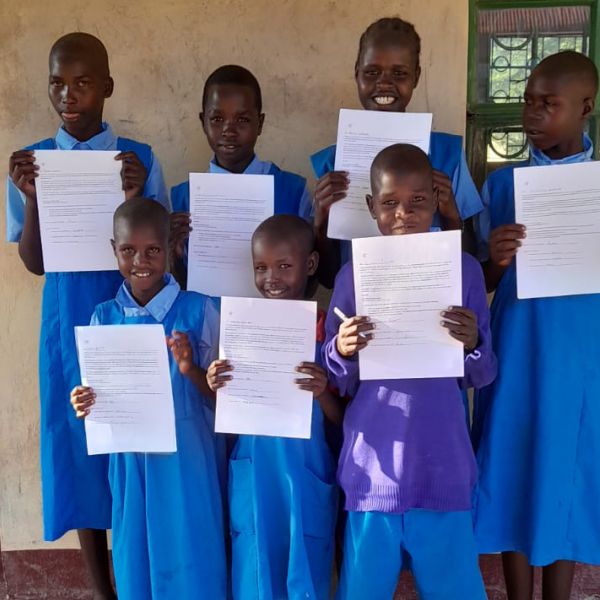Mar 18, 2024
PlantVillage announces new initiative for child welfare
With a history of successful initiatives in climate change and food security, PlantVillage at Penn State is now extending its reach and influence to address another critical global issue: child welfare.

The PlantVillage project, building off a series of past successful initiatives in climate change and food security, recently announced its intention to take on yet another critical global issue: child welfare. The organization recently unveiled the Village Youth Fund, a charitable foundation aimed at preventing child marriage in the pastoralist communities of Northern Kenya.
Kate Ott, a graduate from Penn State in Biobehavioral Health/Child Maltreatment Advocacy Studies who is currently at NYU completing a masters in global health, began working with PlantVillage founder David Hughes last year. With Ott’s background in child welfare and Hughes’ systems expertise, the two collaborated to develop an interdisciplinary solution to the problems they witnessed.
“I was feeling frustrated with the slow, often nonsensical, and bureaucratically cumbersome work of public health," said Ott. "Governments around the world are investing billions of dollars in global development, yet I saw a concerning lack of urgency in the sector. We are only a few years away from climate change causing irreversible damage to our planet. We have six years left to achieve SDG target 5.3 on eliminating child marriage, yet data is indicating that if we continue at our current pace, we won’t eliminate child marriage for another 300 years. I was becoming angry because while relatively well-off people in the global north are wasting time, it’s those in low- and middle-income countries that are going to have to deal with the consequences.”
Hughes, who is known for his results-oriented approach that reflects Penn State's Land Grant legacy, was a natural mentor for Ott. Their idea for the Village Youth Fund is to maximize impact and address various global challenges simultaneously by tapping into the energy, intelligence, and creativity of African youth. This involves leveraging school-based initiatives to enhance food security and rapidly scale carbon removal efforts, all while secondarily addressing the root cause of child marriage through financial incentives to boost school attendance.
One of the local pastoralist experts and lead on the effort, James Ekuwam, said “A girl child from a poor background in the pastoralist communities has less than a 1% chance of getting an education and is instead seen as a source of income for the family. Girls will usually be married from the age of nine and above with the dowries being as much as 15 livestock depending which family she comes from.”
With the help of Ekuwam and the rest of the team on the ground, school gardens are now being used to not only provide students with hands-on learning opportunities, but also generate revenue through the sale of surplus crops. This revenue will then be reinvested into the school, creating a self-sustaining economic model. Furthermore, the production of biochar as part of science classes works to increase moisture in the soil while simultaneously acting as a carbon sink. This activity allows for carbon credit trading, providing opportunities for kids to develop practical business skills while turning their climate change efforts into an additional revenue stream. Profits from these and other planned ventures will then be channeled into high yield savings accounts for students that they will be able to access upon graduation, serving as a strong financial incentive for families to keep their kids in school.
The decisions made for our planet today will inevitably impact the youth who will inherit it, with African communities shouldering the greatest burden in the face of the climate crisis. African youth should therefore be given a voice in the decisions that will directly impact their futures.
“There is compelling research on the link between children's psychological resilience in the face of disasters and their active engagement in solutions," said Ott. "Allowing kids to have a developmentally appropriate level of involvement can give children a sense of competence and control where they may otherwise feel helpless. Being successful at this and receiving praise from adults for their efforts also helps children build self-efficacy. By putting the kids at the center of our broader resilience building activities, we hope to empower a generation of confident young people that will graduate ready and able to change the world.”
Ekuwam added that “Keeping girls in school will not only change their lives, but also the perspective of the community that girls are only meant for marriage. We want to show that girls can be the change in their communities and inspire change throughout the entire African continent.”
If you or somebody you know is interested in donating to the VYF, please visit www.villageyouthfund.org (EIN # 93-3317047). All proceeds go directly to the kids.